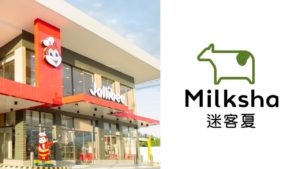Local restaurant chain operator Figaro Coffee Group Inc. is planning a P1.77-billion stock market debut in December, pitching a new consumer play to investors to raise funds to fast-track its expansion program.
Figaro plans to offer up to 1.26 billion common shares at up to P1.28 per share, with an option to upsize by 126 million shares, based on a prospectus dated Oct. 24 filed in the Securities and Exchange Commission.
Net proceeds will fund new store openings and renovation, commissary expansion, debt repayment, information technology infrastructure and potential acquisitions in the coming years.
The proposed equity deal will bring at least 28.4 percent of its shares to public hands and give it a market capitalization of about P6.25 billion, assuming that the offer would be pegged at the maximum price.
Figaro has mandated Abacus Capital & Investment Corp., China Bank Capital Corp. and PNB Capital and Investment Corp. as joint issue managers, lead underwriters and bookrunners for this equity deal.
Founded in 1993, Figaro is led by the group of businessman Jerry Liu, whose family also controls publicly-listed electronics manufacturer Cirtek Holdings.
Figaro operates retail restaurants with 90 combined branches nationwide and selected offshore markets. As of September, Figaro was operating 52 Figaro coffee shops, 31 Angel’s Pizza outlets, five Tien Ma’s Taiwanese cuisine restaurants, one TFG Express outlet and one Café Portofino outlet.
In 2020, Figaro’s systemwide sales amounted to P873.47 million, of which P792.86 million was generated from corporate sales, while P240.76 million came from franchised stores.
In the first six months of this year, Figaro generated P114.45 million in net profit out of P857.35 million sales. For the whole of 2020, net profit amounted to P103.31 million out of P840.86 million in revenue.
Figaro believes its key strengths are as follow: offering “best value for money” products catering to Philippine market taste profiles; “resilient and effective” business model operating in a consumption-driven economy; multiple sales channels formats providing “convenience and flexibility;” “high-quality” production and commissary facilities and seasoned management team and shareholder support.


